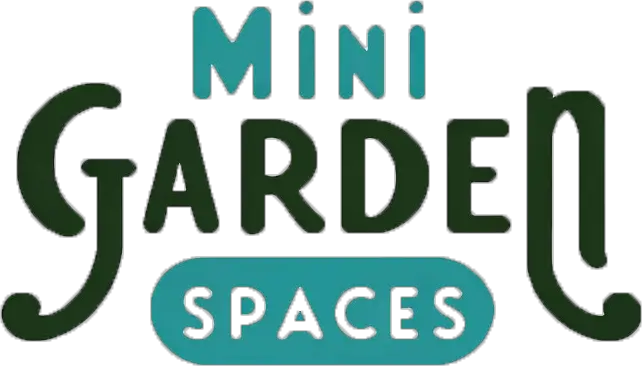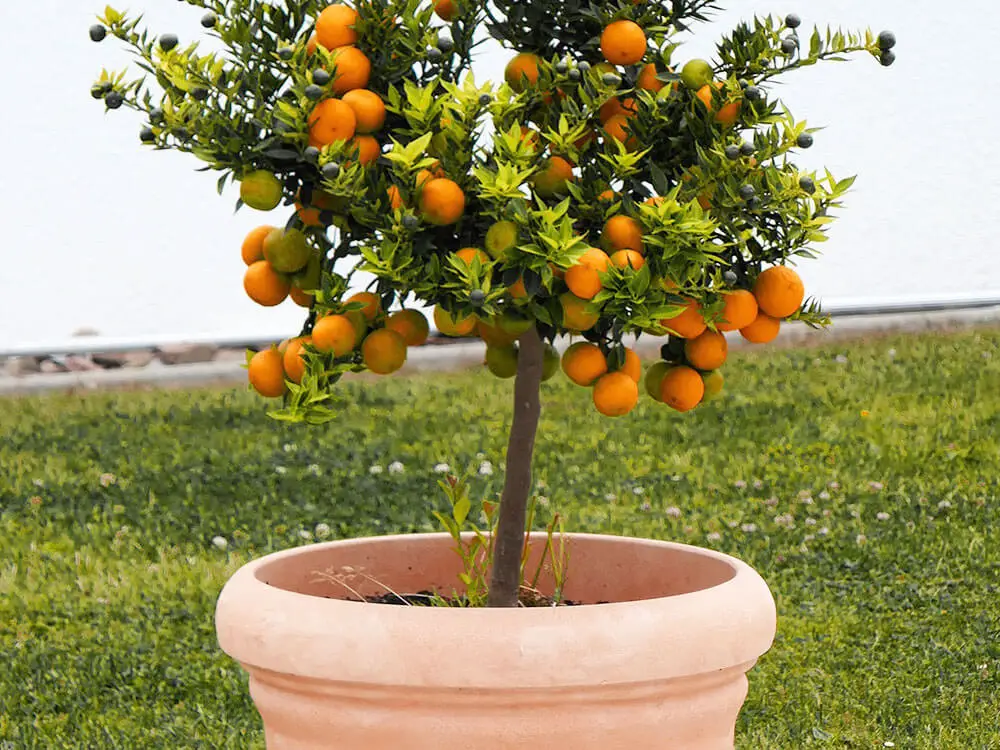12 Fruit Trees You Can Grow in Containers
September, 2022 |Do you have limited garden space but love the idea of harvesting your own fruit? You don’t need a large garden to enjoy the benefits of a fruit tree. It’s definitely possible to grow and maintain fruit trees in a container and keep your favorite fruits on hand.
Whether you have a deck space, porch, mini garden, or balcony, you could soon be picking delicious fruits to enjoy throughout the summer and fall. Plus you’ll also enjoy a beautiful display of spring blossoms too.
Choosing the best fruit tree variety
For each fruit tree below we list some recommended varieties to choose from. These varieties can all cope well with being kept in a container.
If your garden space is really small, check out our list of dwarf fruit tree varieties. On this list, we mention naturally dwarfing varieties and popular fruit varieties that you can usually find on dwarf rootstock. This means you can enjoy popular fruits, but on a tree that will stay at a more manageable height!
Some fruits or varieties may require a chill period (winter temperatures of below 45° F) to successfully produce. So make sure you double-check the label or online description of any fruit tree you order. This is especially true for apricots, peaches, figs, and cherries.
Can the tree self-pollinate?
Make sure you also check if the fruit tree variety you’re choosing can self-pollinate or not. Some fruit trees are already self-fertile, so the insects pollinating their own flowers will allow them to produce fruit. Some trees however need a companion fruit tree to allow for cross-pollination and a good crop of fruits.

Here are 12 fruit trees you can grow in containers or pots in your mini garden space.
1. Citrus Trees
One of the most popular trees to grow on a balcony, keep lemons, limes, or oranges on hand by growing your own citrus tree! If you have very limited space and limited garden tools, try looking for dwarf varieties like the dwarf Meyer lemon or Bearss lime tree.
For something different, you could grow the pink-fleshed Eureka lemon, which also has green and yellow striped skin. And if you’re after a really unusual fruit tree, try the Buddha’s Hand lemon!
Citrus are slow-growing, small trees so they’re ideal for small garden spaces. Just note that most citrus trees are not frost-hardy, so if you live in a cooler area, you may need to bring the tree inside over winter.

2. Peach Tree
Peach trees can be clipped and maintained at manageable heights, but there are naturally small varieties you could choose. The Golden Glory peach has a small maximum height of roughly 1.5 meters making it an excellent choice for containers in a small garden.
A great small garden variety is the ‘Sweet N Up’ peach which has very upright growth, and juicy, blushed fruits. For a more unusual fruit to grow, try the Saturn peach tree on a dwarf rootstock, which produces flat, donut-shaped peaches!
Some peach varieties are more cold-tolerant than others, so make sure you pick a hardy variety if you live in USDA 5 and below. There’s also just something about peach blossom that seems so beautiful, but that’s just our opinion!

3. Olive Tree
Another classic fruit tree that’s perfect for container growing. Olive trees are a common sight throughout the Mediterranean where olives are a popular ingredient. They’re slow growing and can easily be pruned and kept at a low height.
Because of their native range, olive trees can usually only grow in USDA zones 8-11. You can grow them in zones 7 and below, but you’ll need enough space inside to bring the tree out of the winter cold. They’re a great choice if you’re creating a Moroccan-styled garden space.

4. Cherry Tree
A tasty summer fruit to have on hand, cherry trees grow really well in pots. Cherry trees usually start producing fruits at 4-7 years, so if you’re planting your own you may need to wait a few years before making that first cherry pie. It’s one of our favorite trees that you can grow in a container.

5. Apple Tree
Like the cherry, apple trees also perform really well when restricted in a container. It’s also easy to prune and maintain their size and grow them vertically or grow them as a columnar fruit tree. Just remember that fruit can only be produced on old wood, so don’t prune them back too far.
There are literally thousands of apple varieties and cultivars to choose from. From cooking apples to deliciously sweet Galas or Golden Sentinels.
Apples are usually unable to self-pollinate, so to make sure your tree produces fruits you may need to add two trees to allow for cross-pollination.
You might like | How to Grow Apple Trees in a Small Garden

6. Pear Tree
Pear trees can easily be maintained and grown in containers for deliciously crisp pears in late summer. Like apples, pear trees may not be able to self-pollinate, so check the labels of any tree before you purchase.
Just be aware that you may need two pear trees to guarantee a good production of fruit. The Pyrus Conference pear is a great self-fertile and small pear tree variety.
7. Apricot Tree
Apricot trees can easily be maintained in a container or pot, and luckily there are lots of varieties to choose from! The Wenatchee Moorpark apricot can handle the wet northwestern springs. But if you live further south, the Blenheim apricot is a classic that always produces a fantastic crop.

8. Plum Tree
Perfect for making jams, jellies, and chutneys, and also perfectly suited to growing in containers. You can usually find varieties that have been grafted onto ‘Pixy’ rootstock which is a dwarf plum variety. This ensures the tree stays at a manageable height and size for your small garden.
There are lots of varieties available, each descended from either a European or Japanese wild plum species. Jubilee plum is a hardy European variety that blossoms and fruits earlier than most — which is ideal for short growing seasons.

9. Avocado Tree
Avocados are a tasty and highly nutritious fruit to grow in containers at home. They will only grow outside in warmer areas (USDA zones 8-11). In cooler zones, you can leave them outside in summer, but they’ll need to be protected or brought inside in winter.
To set fruits you’ll usually need to wait until the tree is around 6ft, so they are generally best for small gardens and not balconies. Mexican avocado varieties are usually the hardiest, like the Del Rio, which also happens to be very rich and tasty.

10. Pawpaw Tree
If your USDA zone doesn’t match up with apricots, citrus, or avocados, and you lack indoor space to keep them sheltered, a pawpaw tree could be the perfect solution. They have long taproots, so choose a tall container that will allow a good root system to form.
Hardy down to minus figures, the pawpaw has a wonderfully tropical flavor for a temperate fruit tree. It’s also a fruit tree that’s originally native to eastern North America — which is why it’s so cold-tolerant! Some of the hardiest pawpaw varieties include the NC-1 and Pennsylvania Golden.

11. Fig Tree
Fresh figs can be hard to come by in grocery stores, so why not try growing your own? They’re small trees that are perfect for growing in a container in a small garden space.
Originally native to the Mediterranean, fig trees are not cold hardy so if you live in USDA zone 8 or below, they’ll need to be protected from frost. The Alpine George is a great hardy variety that can tolerate temperatures near to 10F.

12. Pomegranate Tree
A small tree that works well in containers and pots. They’re also a really great tree variety for balconies too. Red Silk is a great variety that has a maximum size of roughly 6ft, making it ideal for small garden spaces.
Although native to the Mediterranean, pomegranate trees are quite hardy, usually thriving outside in USDA zones 7-11. If you live in cooler areas one of the best varieties is the Provence or Eversweet pomegranate.

Whether you’ll grow your own apricot trees to make jams and jellies, or if you’d like to have lemons and avocados on hand, growing fruit trees in containers is a great way to add to a garden with limited space. Check out our guide to growing fruit trees in containers for essential tips and guidance.
For other trees to create a diverse balcony garden, check out our list of the best trees to grow on a balcony.
Featured image of a potted citrus tree | Image by Dieter from Pixabay







